When Karens Go Too Far: Unmasking Entitlement & Social Harm
Category: Social Issues
Understanding When Karens Cross the Line
If you’ve ever witnessed or heard about a Karen — the now-iconic term for entitled, disruptive individuals who demand special treatment often at others’ expense — you know that some behaviors go beyond mere annoyance. This post is crafted for socially conscious readers who want to unpack why certain Karen behaviors become dangerous triggers for injustice and social unfairness. Whether you are an advocate for social justice, a casual observer tired of viral Karen incidents, or someone exploring cultural dynamics of entitlement, you’ve landed in the right place.
People arrive here because they've encountered baffling situations where someone's entitled attitude has escalated into harmful conflicts — from racial profiling to public disruption — and they want clarity beyond just memes or viral videos. This post dives deeper than clickbait headlines, offering analysis on the societal impact when Karens go too far and stir injustice, not just inconvenience. We’ll explore case studies, psychological underpinnings, and the broader social implications.
Unlike other articles that merely recount Karen moments, this post connects the dots between entitlement, social structures, and systemic harm. You’ll find an informed, critical perspective on how these behaviors exacerbate inequality and what signals society should watch for. Read on to better understand these disruptive behaviors and why they matter far beyond the surface-level frustration they provoke.
- Understanding When Karens Cross the Line
- Defining the Karen Phenomenon: Origins and Evolving Meaning
- Common Traits and Behaviors that Signal When Karens Go Too Far
- Real-Life Case Studies of Excessive Karen Behavior
- Psychological Drivers Behind Karen Behavior
- The Impact on Marginalized Communities: How Karen Actions Perpetuate Injustice
- Social Media’s Role in Amplifying and Challenging Karen Incidents
- Addressing and Deconstructing Entitlement Culture
- Legal and Ethical Implications of When Karens Go Too Far
- Strategies for Communities and Businesses to Respond Effectively
Defining the Karen Phenomenon: Origins and Evolving Meaning
The term "Karen" has rapidly transformed from a niche internet meme into a widely recognized social critique, symbolizing a specific type of entitlement and privilege manifesting in everyday scenarios. Originally appearing on social media platforms in the early 2010s, "Karen" was initially used humorously to describe a stereotypical problematic middle-aged woman demanding to "speak to the manager." However, its meaning has evolved considerably, reflecting deeper social undercurrents.
Today, the Karen phenomenon encapsulates more than just annoying customer behavior—it represents a broader pattern of entitlement, racial bias, and social injustice. This evolution is crucial to understanding why Karen incidents often spark outrage and highlight systemic inequalities. In essence, Karens wield their privilege to assert dominance or control in public spaces, frequently at the expense of marginalized groups. The shift from meme to social symbol underscores how language adapts to capture complex societal issues, making Karen a potent lens through which to examine power dynamics, entitlement culture, and the everyday manifestations of inequality.

Image courtesy of RDNE Stock project
Common Traits and Behaviors that Signal When Karens Go Too Far
Recognizing when a Karen has crossed the line from mere annoyance to social harm requires understanding the key traits and behaviors that escalate entitlement into dangerous territory. While many may write off Karen moments as petty rants, the underlying patterns often reveal a troubling misuse of power and privilege that disrupts fairness, reinforces systemic biases, and sometimes inflicts real harm on individuals or communities.
Public Confrontations and Escalation
One of the most recognizable signs that a Karen has gone too far is the tendency to engage in public confrontations. These are not simple disagreements but disproportionate, aggressive encounters aimed at asserting dominance. Often occurring in public venues like stores, parks, or public transport, these confrontations can escalate quickly, sometimes involving threats, yelling, or even calls to law enforcement without valid cause. The goal is less about resolving a problem and more about exerting control or punishment against perceived slight or inconvenience.
Unjust Invocation of Authority
A hallmark behavior is the improper or unjustified invocation of authority—Karens frequently claim to be acting in an official capacity or demand involvement of police, store managers, or other officials to settle disputes that do not warrant such escalation. This misuse of institutional authority weaponizes societal structures for personal gain and often disproportionately impacts marginalized groups, contributing to systemic injustice. For example, false reports often lead to unnecessary police intervention, racial profiling, or undue stress on victims, magnifying inequality under the guise of "following rules."
Other Warning Behaviors Include:
- Refusal to abide by common social norms or rules when inconvenient.
- Display of racial or class bias masked as concern or civility.
- Expecting special treatment or privileges without justification.
- Using social media to publicly shame or harass others unfairly.
- Insisting on monopolizing attention and resources despite clear evidence of wrongdoing.
These behaviors are more than irritating quirks; they signal a move from personal entitlement to socially harmful conduct that undermines community trust, fairness, and equality. Understanding these traits is essential for identifying when intervention is necessary to prevent escalation into injustice rather than mere inconvenience.
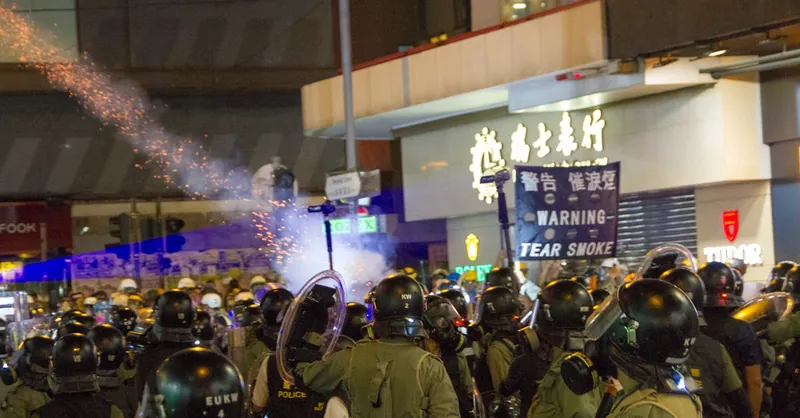
Image courtesy of LT Chan
Real-Life Case Studies of Excessive Karen Behavior
To truly grasp the severity of entitlement escalating into harmful actions, it helps to examine documented incidents where Karen behavior crossed legal and ethical lines, resulting in racial profiling, harassment, or outright discrimination. These real-world examples expose how unchecked privilege not only disrupts social harmony but inflicts tangible damage on victims, highlighting the urgent need for awareness and accountability.
The Central Park Birdwatching Incident
Perhaps one of the most notorious cases involved Amy Cooper, who in 2020 weaponized her entitlement by falsely reporting an African American birdwatcher to New York City police, claiming he was threatening her. This act of racial profiling and misuse of law enforcement triggered a national reckoning on how seemingly minor Karen moments can escalate into dangerous, life-altering situations. Cooper’s false report led to widespread condemnation because it spotlighted how Karens exploit systemic biases to manipulate authority against marginalized individuals — reinforcing prejudice and perpetuating fear in public spaces.
The Pool Party Controversy in Georgia
Another example unfolded when a white woman confronted and harassed Black families at a community pool, complaining loudly and summoning security over alleged rule violations that were inconsistently enforced based on race. This incident illustrated how entitlement can morph into discriminatory harassment, where Karens weaponize rules selectively to police and exclude others unfairly, exacerbating social division and injustice.
Other Documented Cases of Harmful Karen Actions
-
Racially Biased Police Calls – Numerous viral videos show Karens repeatedly calling the police on Black individuals engaging in everyday activities such as walking, shopping, or barbecuing. These actions waste critical law enforcement resources and put innocent people's safety at risk due to false accusations grounded in racial bias.
-
Workplace and Service Industry Harassment – Karens frequently harass frontline workers, often targeting employees from marginalized communities with demands or insults. Such behavior not only inflicts emotional distress but can also lead to workplace discrimination and exacerbate existing economic inequalities.
-
Public Shaming on Social Media – Many Karens leverage platforms to publicly shame or threaten others based on minor disputes or personal biases, fueling online harassment campaigns that have real-world mental health consequences.
These documented cases reveal a disturbing pattern: when Karens go too far, their actions are more than social nuisances—they become instruments of systemic oppression and social harm. By spotlighting these behaviors, society can better understand the mechanics of entitlement-driven injustice and work toward stronger protections against such abuses.
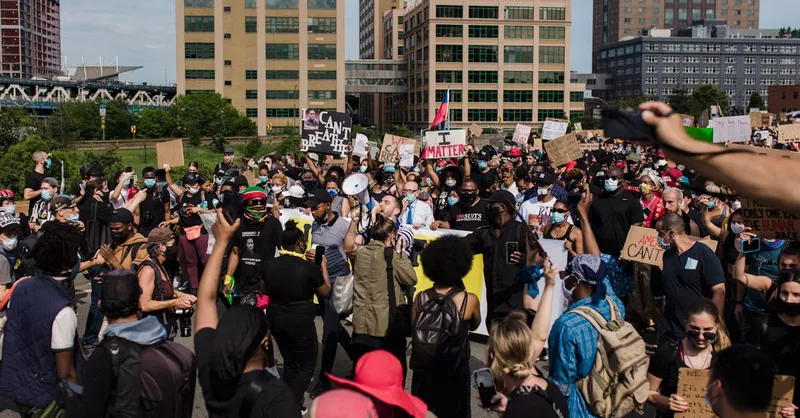
Image courtesy of Life Matters
Psychological Drivers Behind Karen Behavior
To fully understand why some individuals exhibit Karen-like entitlement despite potential social repercussions, it’s essential to delve into the psychological drivers underpinning this disruptive behavior. At its core, Karen behavior often stems from a complex interplay of entitlement psychology, social conditioning, and identity reinforcement, which collectively fuel a mindset that justifies aggressive demands and disregard for others’ rights.
Entitlement Psychology and the Need for Control
Many Karens exhibit a heightened sense of personal entitlement—a belief that they inherently deserve special treatment and priority over others. This sense of entitlement is closely linked to control and dominance needs, where the individual feels validated only when asserting authority or influence in social situations. Psychologically, the need to control outcomes and dictate terms can serve as a defense mechanism against feelings of insecurity or perceived social threat. The Karen’s insistence on “getting her way” functions as a coping strategy to restore a sense of power in unpredictable or uncomfortable environments.
Social Conditioning and Privilege Reinforcement
Karens are often products of social conditioning within privileged environments that nurture expectations of preferential treatment. Cultural and socioeconomic factors play a pivotal role, where repeated experiences of unchallenged entitlement reinforce beliefs that their demands are normal and justifiable. This conditioning also desensitizes individuals to the impact their behaviors have on others, fostering a lack of empathy especially toward marginalized groups. In many cases, these individuals grow up with implicit messages that their convenience and comfort take precedence over collective fairness, which manifests later as disruptive behavior in public or institutional settings.
Cognitive Dissonance and Dismissal of Social Consequences
Despite frequent social pushback, many Karens display a remarkable dismissal of consequences, often rationalizing their actions or downplaying the harm caused. This can be explained through the lens of cognitive dissonance, where their self-image as “justified” or “reasonable” conflicts with evidence of wrongdoing. To resolve this discomfort, individuals may double down on their entitlement or shift blame externally, refusing to internalize social criticism. This psychological barrier prevents behavioral change and perpetuates cycles of entitlement-driven conflict.
Summary of Psychological Drivers
- Inflated entitlement and control needs that validate dominance.
- Social and cultural reinforcement of privilege normalizing special treatment.
- Empathy deficits towards marginalized groups shaped by upbringing and societal context.
- Cognitive dissonance mechanisms that justify harmful behavior and ignore social costs.
Understanding these psychological roots is critical for developing effective social responses. Interventions that merely confront surface behaviors without acknowledging underlying entitlement and conditioning are unlikely to yield lasting change. Instead, raising awareness of these drivers encourages empathy, accountability, and systemic shifts needed to curb the injurious impacts when Karens go too far.

Image courtesy of Andrea Piacquadio
The Impact on Marginalized Communities: How Karen Actions Perpetuate Injustice
When Karens engage in entitlement-fueled behaviors, the consequences ripple far beyond personal inconvenience and annoyance; they actively reinforce systemic biases and exacerbate social inequities, disproportionately harming marginalized communities. The misuse of authority and the weaponization of privilege inherent in many Karen incidents amplify existing power imbalances, contributing to a cycle of injustice that is both pervasive and damaging.
Reinforcement of Systemic Biases
Karen behaviors like racially biased policing calls, discriminatory demands, and public shaming serve to uphold and normalize systemic prejudices embedded in institutions. For example:
-
False or frivolous police reports disproportionately target Black, Indigenous, and People of Color (BIPOC), perpetuating harmful stereotypes of suspicion and criminality.
-
Selective enforcement of rules, often weaponized by Karens against marginalized individuals, legitimizes discriminatory practices by appearing as neutral applications of policy while reinforcing exclusion and segregation.
These actions do more than inconvenience individuals; they deepen mistrust between marginalized communities and law enforcement, public services, and social institutions, fueling a climate of fear and alienation.
Disproportionate Consequences on Vulnerable Groups
The fallout from Karen-driven encounters rarely impacts the entitled individual themselves; rather, it targets those already facing societal marginalization. Vulnerable groups often endure:
- Emotional trauma and anxiety stemming from harassment, profiling, and public humiliation.
- Economic repercussions, as unjust interference can lead to job instability or exclusion from community resources.
- Legal risks, including wrongful detentions or charges instigated by false complaints.
This disproportionate burden underscores how Karen entitlement functions as a microcosm of broader social injustice—where the privileges of one amplify the vulnerabilities of others. Understanding this dynamic is crucial for recognizing why calls for accountability and systemic reform are not merely reactions to isolated incidents but urgent demands for fairness and equity in our shared public life.
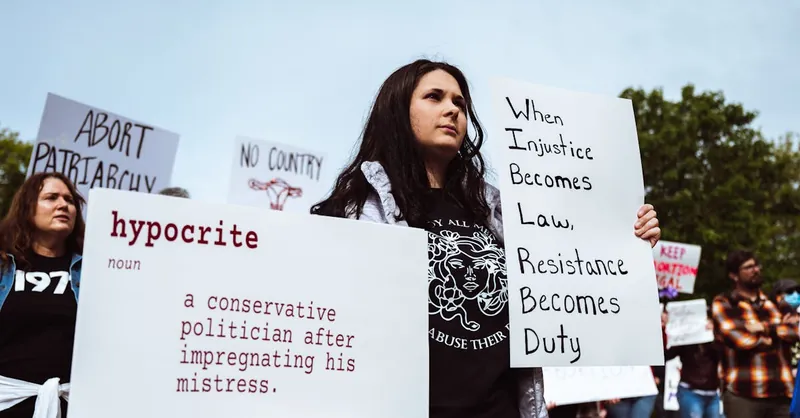
Image courtesy of Brett Sayles
Social Media’s Role in Amplifying and Challenging Karen Incidents
Social media platforms have become powerful double-edged swords in the ongoing saga of Karen incidents. On one hand, viral videos and posts bring widespread awareness to problematic entitlement behaviors that often go unchecked in real-life settings. These digital exposures shine a spotlight on injustices—such as racial profiling, harassment, and abuse of authority—helping to hold individuals accountable and spark important public conversations around entitlement and systemic discrimination.
However, social media’s rapid and sensationalized nature can also oversimplify complex social dynamics, reducing deeply rooted issues to viral soundbites or memes. The tendency to frame Karen moments as isolated, personal failings neglects the broader societal and psychological factors involved, potentially minimizing the need for structural change or deeper accountability. Moreover, the performative outrage seen on platforms like Twitter, Instagram, and TikTok can sometimes prioritize public shaming over meaningful resolution, encouraging a culture of spectacle rather than sustained activism.
Key Tensions in Social Media’s Influence on Karen Culture
-
Increased Accountability
Viral videos make it harder for entitled individuals to escape scrutiny. Public exposure can lead to consequences such as job loss, legal action, or social backlash, pushing some to recognize and curb harmful behavior. -
Oversimplification of Issues
Complex systemic problems—like racial bias, privilege, and social inequality—are often distilled into easily digestible clips that focus on individual incidents rather than underlying societal mechanisms. -
Performative Outrage and “Cancel Culture”
While outrage can mobilize social justice efforts, it may also devolve into performative gestures that lack depth or follow-through. This risks alienating potential allies and shifting focus from collective solutions to punishment of individuals. -
Algorithmic Amplification and Echo Chambers
Social media algorithms tend to amplify sensational and polarizing content, which can escalate tensions and spread misinformation about Karen incidents, fueling division instead of understanding.
Recognizing social media’s pivotal role in both exposing and complicating Karen behaviors is essential. For meaningful progress, users and activists must balance viral awareness with critical analysis, promoting accountability without sacrificing context. Only then can the digital sphere evolve into a tool that challenges, rather than simply entertains, the entitlement and injustice perpetuated by Karens.

Image courtesy of Suki Lee
Addressing and Deconstructing Entitlement Culture
To effectively curb harmful Karen-style behavior, it is vital to address and deconstruct the entitlement culture that nurtures it. Entitlement does not arise in a vacuum; it flourishes within social ecosystems shaped by privilege blind spots, systemic inequalities, and normalized expectations of preferential treatment. These factors create an environment where individuals feel justified in demanding special privileges—and often weaponize social institutions to enforce these demands—without recognizing the broader impacts on fairness and justice.
The Role of Privilege Blind Spots
Many Karens operate from a place of unconscious privilege, unaware or unwilling to acknowledge how their social status affords them power unseen by others. These so-called privilege blind spots allow an entitlement mindset to grow unchecked. Recognizing privilege blind spots is crucial because it challenges individuals to:
- Reflect on how implicit advantages shape expectations of special treatment.
- Understand the disproportionate consequences their behavior inflicts on marginalized groups.
- Develop empathy and accountability by connecting personal actions with systemic harm.
Without this critical self-awareness, entitlement behaviors remain entrenched, perpetuating cycles of injustice under the guise of simple inconvenience or civility.
Educational and Cultural Approaches to Reducing Karen Behavior
Combatting entitlement culture requires more than individual admonishment; it demands systemic education and cultural shifts that emphasize equity and collective responsibility. Effective strategies include:
- Incorporating privilege and bias awareness into school curricula, workplaces, and community programs to build foundational understanding.
- Promoting empathy training that highlights lived experiences of marginalized communities affected by entitlement-driven actions.
- Encouraging institutional accountability where businesses, law enforcement, and social organizations set clear policies against abusive or discriminatory conduct.
- Cultivating public dialogues and media literacy that move beyond caricatured Karen stereotypes to explore the structural roots and social costs of entitlement.
- Supporting bystander intervention initiatives that empower witnesses to challenge or deescalate entitlement behavior in real time.
By confronting entitlement culture head-on through education, empathy-building, and systemic reforms, society can begin to dismantle the enabling conditions that allow Karen-style behavior to persist. This holistic approach fosters a more just public sphere where respect, fairness, and shared humanity counterbalance the dangerous impulses of entitlement gone too far.
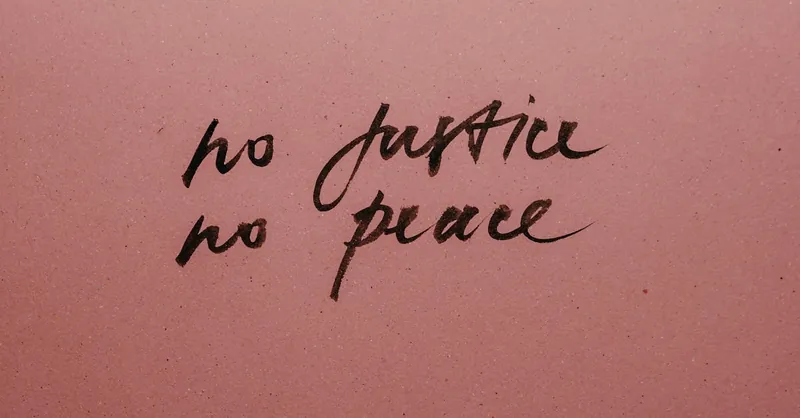
Image courtesy of Polina ⠀
Legal and Ethical Implications of When Karens Go Too Far
When Karen behavior escalates beyond social annoyances into harmful actions, it triggers serious legal and ethical concerns that affect not only the individuals involved but also societal norms around justice and equity. The abuse of privilege seen in excessive Karen incidents often leads to legal consequences, including lawsuits, criminal charges, or policy reforms designed to protect victims from discrimination and harassment. These outcomes underscore the critical need for legal frameworks that address the misuse of authority and prevent entitlement-driven harm.
Potential Legal Consequences
-
False Reporting and Harassment Charges
Many Karens face legal repercussions for making false police reports or deliberately harassing others. Such actions can result in criminal charges like filing a false report, harassment, or defamation, especially when the behavior causes emotional distress or unjust legal entanglement for victims. -
Civil Litigation for Discrimination and Emotional Harm
Victims of Karen-driven racial profiling or workplace harassment may pursue civil suits alleging discrimination, intentional infliction of emotional distress, or violations of civil rights statutes. These lawsuits can lead to significant financial penalties and mandate organizational changes to prevent recurrence. -
Employment and Social Repercussions
Beyond the courtroom, public exposure of Karen incidents often leads to job terminations or reputational damage. Employers increasingly recognize the importance of addressing entitlement behavior through internal disciplinary measures aligned with ethical workplace standards.
Policy Changes and Protective Measures
In response to the escalating harms caused by entitlement-fueled abuse, several jurisdictions and institutions are implementing policies aimed at safeguarding marginalized individuals and promoting equitable treatment:
-
"False Reporting" Laws and Penalties: Some regions have strengthened laws penalizing false accusations, particularly those motivated by bias or malice, to deter weaponization of law enforcement against innocent parties.
-
Anti-Harassment and Anti-Discrimination Policies: Businesses and public agencies are adopting clearer, enforceable policies that explicitly forbid entitlement-driven harassment and require regular training on implicit bias and respectful conduct.
-
Community Accountability Initiatives: Grassroots organizations and local governments are developing programs that focus on restorative justice, bystander intervention, and education, aiming to transform entitlement culture and foster inclusivity.
Ethical Imperatives for Society
At a deeper level, the Karen phenomenon raises profound ethical questions about social responsibility, privilege, and fairness. It challenges institutions and individuals alike to confront how they respond to entitlement behavior—whether by enabling, ignoring, or actively countering it. Ethical responses necessitate:
- A commitment to protecting vulnerable communities from abuse of power.
- Ensuring that systems of authority are not compromised by personal biases or entitlement.
- Fostering a culture where equitable treatment and accountability prevail over unchecked privilege.
Understanding the legal and ethical landscape surrounding Karen incidents is vital for creating a just society. As entitlement-driven behaviors provoke policy reforms and legal actions, they also offer an opportunity to redress systemic imbalances and reaffirm shared values of dignity and fairness for all.
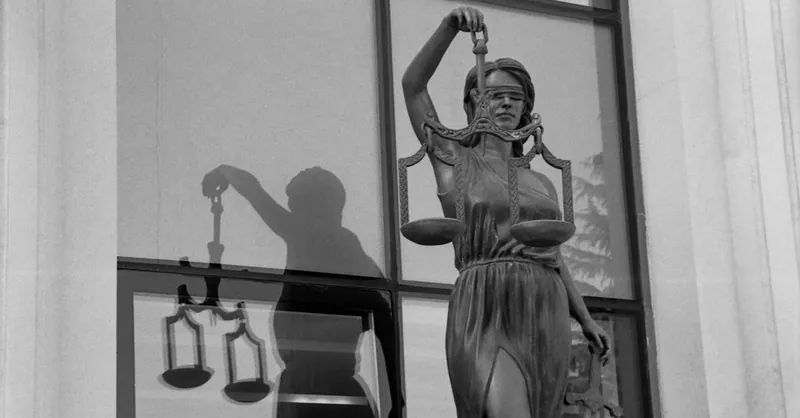
Image courtesy of Sena Köse
Strategies for Communities and Businesses to Respond Effectively
Effectively managing confrontations sparked by entitlement-driven Karen behavior requires proactive strategies tailored to the needs of bystanders, employees, and organizations. Communities and businesses play a crucial role in promoting equity, de-escalating conflicts, and safeguarding vulnerable individuals from the harmful impact of such disruptions.
Practical Guidance for Bystanders
Bystanders witnessing Karen behaviors can act as pivotal agents in diffusing tension and supporting fairness. Key strategies include:
- Maintain Calm and Assess Safety: Before intervening, evaluate whether stepping in could escalate the situation or cause harm. Prioritize safety for yourself and others.
- Use De-escalation Techniques: Employ calm, non-confrontational language to acknowledge emotions without validating aggressive entitlement. Phrases like “Let’s take a moment to breathe” or “How can we solve this together?” can defuse tension.
- Support the Targeted Individual: Affirm and validate those unfairly confronted or harassed by Karens, showing solidarity and minimizing isolation.
- Report Appropriately: If the scenario demands, document the incident and alert supervisors, security personnel, or relevant authorities who are trained to handle such disruptions professionally.
Employee Training and Empowerment
Frontline employees often bear the brunt of Karen entitlement, making targeted training and support essential for workplaces aiming to foster respectful environments:
- Provide Comprehensive De-escalation Training: Equip employees with skills to safely reduce confrontation escalation, recognize early warning signs, and respond with empathy and authority.
- Establish Clear Policies and Protocols: Define unacceptable behaviors explicitly, empowering staff to enforce rules uniformly and protect coworkers and customers without fear of retaliation.
- Encourage Reporting and Support Systems: Create confidential channels for employees to report harassment or discriminatory incidents. Ensure follow-up support to address emotional and legal concerns.
- Promote Inclusive Culture: Reinforce organizational commitment to equity, highlighting respect and fairness as core values that override entitlement or privilege claims.
Organizational and Community-Level Initiatives
Addressing Karen behaviors at a systemic level demands institutional policies and community engagement designed to uphold justice and inclusivity:
- Implement Equity-Centered Policies: Develop rules that dismantle privilege abuses in service delivery, enforcement, and dispute resolution, ensuring marginalized groups are protected.
- Foster Bystander and Allyship Programs: Train community members and staff to recognize entitlement behaviors and intervene constructively, creating a culture of collective responsibility.
- Use Restorative Practices: When possible, adopt restorative justice approaches that encourage offenders to understand harm caused and make amends, promoting genuine accountability.
- Leverage Community Dialogue and Education: Host workshops and forums focusing on privilege awareness, implicit bias, and respectful interpersonal conduct to build empathy and reduce entitlement-driven conflicts.
By adopting these multi-layered strategies, communities and businesses can transform volatile encounters with Karens into opportunities for promoting fairness, protecting vulnerable populations, and fostering inclusive public spaces. Proactive preparation not only mitigates immediate conflicts but also contributes to long-term cultural change that resists entitlement and supports social justice.

Image courtesy of Yan Krukau
